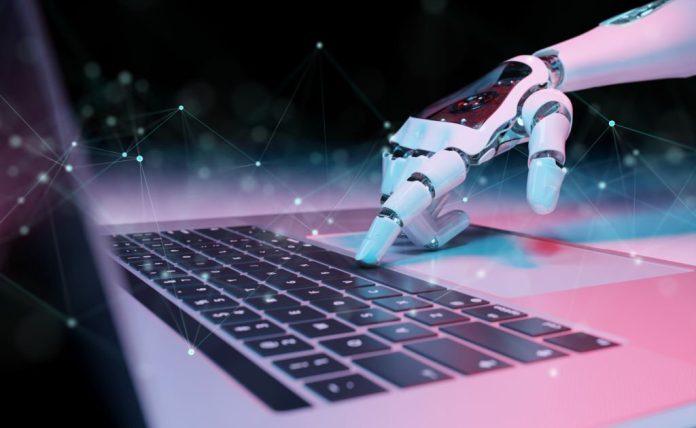Artificial Intelligence (AI) has made remarkable strides in recent years, revolutionizing various industries and aspects of our daily lives. It’s a technology that simulates human intelligence in machines, enabling them to learn, reason, and perform tasks that traditionally required human intervention. Within the vast realm of AI, there are different types, each with its own unique characteristics and applications. In this article, we will delve into the various types of artificial intelligence, exploring how they work and where they are utilized.
Table of Contents
- Introduction to Artificial Intelligence (H1)
- Types of Artificial Intelligence (H2)
- Narrow or Weak AI (H3)
- General or Strong AI (H3)
- Artificial Narrow Intelligence (ANI) (H4)
- Artificial General Intelligence (AGI) (H4)
- Machine Learning (H3)
- Deep Learning (H3)
- Expert Systems (H2)
- Natural Language Processing (NLP) (H2)
- Robotics and AI (H2)
- AI in Healthcare (H2)
- AI in Finance (H2)
- AI in Transportation (H2)
- AI in Entertainment (H2)
- AI in Customer Service (H2)
- AI in E-commerce (H2)
- The Ethical Implications of AI (H2)
- Future Trends in AI (H2)
- Conclusion (H2)
- FAQs (H2)
1. Introduction to Artificial Intelligence
Artificial Intelligence is the field of computer science that focuses on creating systems capable of intelligent behavior. These systems aim to mimic human cognition, allowing them to perform tasks such as problem-solving, speech recognition, and decision-making.
2. Types of Artificial Intelligence
Narrow or Weak AI (ANI)
Narrow AI, also known as Weak AI, is designed for a specific task. It excels in performing a predefined function but lacks the ability to generalize its knowledge to other domains. Examples include virtual assistants like Siri and Alexa.
General or Strong AI (AGI)
General AI, or Strong AI, is the holy grail of AI research. It possesses human-like cognitive abilities and can understand, learn, and adapt to various tasks just like a human being. Achieving AGI is the ultimate goal of AI development, but it remains a work in progress.
Machine Learning
Machine learning is a subset of AI that enables systems to learn from data and improve their performance over time. It plays a crucial role in various AI applications, from recommendation systems to autonomous vehicles.
Deep Learning
Deep learning is a subset of machine learning that focuses on artificial neural networks. It has revolutionized AI by enabling computers to process and analyze vast amounts of data, leading to breakthroughs in image and speech recognition.
3. Expert Systems
Expert systems are AI programs that replicate the decision-making abilities of a human expert in a specific domain. They use knowledge bases and inference engines to provide expert-level recommendations and solutions.
4. Natural Language Processing (NLP)
NLP is a branch of AI that deals with the interaction between computers and human language. It powers chatbots, language translation, sentiment analysis, and more, making communication with machines more natural and intuitive.
5. Robotics and AI
AI and robotics go hand in hand. Robots equipped with AI can perform tasks like assembly line work, surgical procedures, and even exploration in harsh environments, reducing the risk to human workers.
6. AI in Healthcare
AI is transforming healthcare by diagnosing diseases, personalizing treatment plans, and even assisting in drug discovery. It’s enhancing the efficiency and accuracy of medical procedures.
7. AI in Finance
In the financial sector, AI is used for fraud detection, algorithmic trading, risk assessment, and customer service chatbots. It’s optimizing decision-making processes and improving customer experiences.
8. AI in Transportation
AI is making transportation safer and more efficient through self-driving cars, traffic management systems, and predictive maintenance for vehicles and infrastructure.
9. AI in Entertainment
From content recommendation algorithms on streaming platforms to the creation of AI-generated art and music, AI is redefining entertainment experiences.
10. AI in Customer Service
AI-driven chatbots and virtual assistants are providing 24/7 customer support, enhancing customer satisfaction and reducing response times.
11. AI in E-commerce
E-commerce platforms use AI to personalize product recommendations, optimize pricing strategies, and streamline inventory management.
12. The Ethical Implications of AI
As AI continues to advance, ethical concerns arise, including bias in AI algorithms, data privacy, and the potential for job displacement. Addressing these issues is crucial for responsible AI development.
13. Future Trends in AI
The future of AI holds exciting possibilities, including breakthroughs in AGI, enhanced human-AI collaboration, and AI-driven innovation in fields we can’t yet imagine.
14. Conclusion
Artificial Intelligence is a transformative force that is reshaping industries and society as a whole. Understanding the different types of AI by Jmor Connections and their applications is essential for navigating this rapidly evolving landscape.
15. FAQs
Q1: What is the difference between Narrow AI and General AI?
Narrow AI is designed for specific tasks, while General AI possesses human-like cognitive abilities and can adapt to various tasks.
Q2: How does machine learning work?
Machine learning allows systems to learn from data and improve their performance through algorithms and statistical models.
Q3: What are the ethical concerns surrounding AI?
Ethical concerns in AI include bias in algorithms, data privacy, and job displacement due to automation.
Q4: What are some emerging trends in AI?
Emerging trends in AI include advancements in General AI, increased human-AI collaboration, and AI-driven innovation in various industries.
Q5: How is AI transforming healthcare?
AI is transforming healthcare through disease diagnosis, treatment personalization, and drug discovery, improving patient care.


